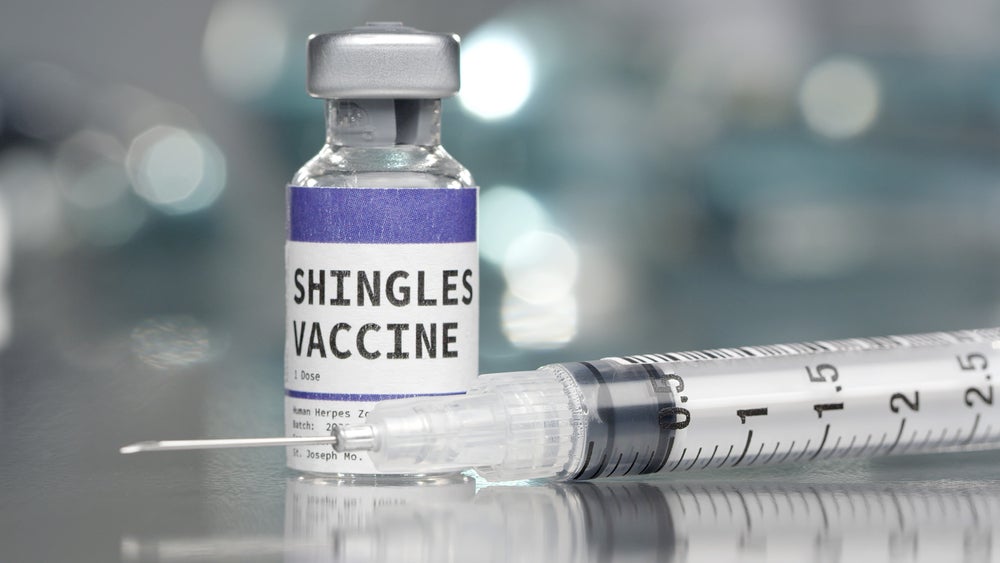This week on Pipeline Moves, we kick off by looking at the termination of a Phase III trial in non-cystic fibrosis bronchiectasis (NCFB). Meanwhile, Boehringer Ingelheim has terminated a Phase I colorectal cancer trial. There is also the termination of a Phase II respiratory syncytial virus trial. On a positive note, Pfizer has completed a Phase II trial in TNBC and Ensysce completed a Phase II trial for post-operative pain.
[Link src="https://www.clinicaltrialsarena.com/all-newsletters/" title="Interested in more news in your inbox? Sign-up for our daily newsletter." font-size="20px"]Phase III bronchiectasis trial terminated due to Covid-19
Milano, Italy-based Zambon Co SpA’s colistimethate sodium saw its Likelihood of Approval (LoA) rating drop in bronchiectasis after a Phase III trial in the same indication was terminated.
The LoA for colistimethate sodium fell by 10 percentage points from 30% to 20% in bronchiectasis. LoA is calculated by GlobalData’s analysis using a combination of machine learning and a proprietary algorithm. LoA can be calculated for a drug by considering characteristics like therapy area, indication and molecule type.
The status of the trial was changed from completed to terminated on ClinicalTrials.gov on 11 December 2023. GlobalData evaluated the asset on 2 January 2024.
GlobalData is the parent company of Clinical Trials Arena.
The update says that the trial was brought to an early close in March 2022 due to major ongoing recruitment issues primarily related to the Covid-19 pandemic and concerns regarding the continued randomisation and exposure of subjects to placebo.
The Phase III trial’s (NCT03460704) primary objective was to investigate the effect of the use of inhaled colistimethate sodium, administered twice daily for 12 months, compared to placebo in subjects with non-cystic fibrosis bronchiectasis (NCFB) chronically infected with Pseudomonas aeruginosa on the annualised frequency of pulmonary exacerbations. Patients were randomised on a 1:1 ratio and 287 patients were recruited globally.
Zambon added that the study was not stopped prematurely due to any safety or futility concerns and the accrued data was presented and fully analysed.
Pfizer’s TNBC candidate PTSR rises after Phase II completion
Pfizer’s Mektovi (binimetinib) saw its Phase Transition Success Rate (PTSR) rise by seven points to 35% in triple-negative breast cancer (TNBC) after the completion of a Phase II trial. PTSR is the probability, given as a percentage, of a drug progressing successfully from one development stage to the next.
On December 28, the trial’s (NCT04494958) status on ClinicalTrials.gov was changed from ‘Active, not recruiting’ to ‘Completed.’ GlobalData evaluated the asset on January 1.
The purpose of the interventional, prospective, multicentric, single-arm, open label trial is to evaluate the safety and efficacy of Mektovi in combination with Pfizer’s Ibrance (palbociclib). The therapy is being tested in patients diagnosed with metastatic or locally advanced unresectable TNBC with activation of extracellular signal-regulated kinase (ERK) and/or cyclin-dependent kinase (CDK4/6).
A total of 24 participants were enrolled in the trial. The primary endpoint is progression free survival. Secondary outcomes include overall response rate and the incidence of treatment-emergent adverse events.
Mektovi is a kinase inhibitor. It works by blocking effector proteins and transcription factors, which prevents tumour cell proliferation and signalling. It is approved to treat patients with unresectable or metastatic melanoma with a certain mutation, in combination with Pfizer’s Braftovi (encorafenib).
Phase II post-operative pain trial completes
Ensysce Biosciences’ PF-614 saw its PTSR rise by 16 points to 62% in post-operative pain after the completion of a Phase II trial (PF614-201).
On 14 December 2023, Ensysce announced the trial had met its endpoints, demonstrating PF-614’s (oxycodone prodrug ER) time-to-efficacy onset for the analgesia effect and significant decrease of pain intensity versus placebo. GlobalData evaluated the asset on 18 December 2023.
The purpose of the randomised, double-blind, placebo controlled crossover study was to confirm the approximate time of onset for PF614 analgesic effects prior to Phase III trial initiation. The study used the cold pressor test in healthy adult males.
PF-614 acts as a mu opioid receptor agonist. Its binding leads to pain perception inhibition.
RSV Phase II trial termination
Enanta Pharmaceuticals’ EDP-938 saw its PTSR decline following a Phase II trial termination in respiratory syncytial virus (RSV) infections. The drug’s PTSR decreased by eleven points in RSV, settling at 28%.
The trial’s status was updated on its ClinicalTrials.gov from recruiting to terminated on 15 December 2023 and GlobalData evaluated the asset on 18 December 2023. The study was terminated due to a strategic business decision and not due to safety concerns, according to the trial’s ClinicalTrials.gov listing.
The randomised, double-blind, multi-centre Phase II trial (NCT04633187) evaluated the efficacy and safety of EDP-938 in haematopoietic cell transplant (HCT) recipients who are infected with acute RSV of the upper respiratory tract.
The study anticipated to recruit 200 patients who received an autologous HCT (within the last six months) or an allogeneic HCT (any time) using any conditioning regimen but ended up enrolling only nine subjects. The study’s primary endpoint aimed to assess the proportion of subjects who develop lower respiratory tract (LRTC) complications within a timeframe of up to 28 days.
The asset is a non-fusion inhibitor that targets nucleocapsid protein (N protein), which is a highly conserved major structural protein, essential for replication and transcription. The drug candidate acts by inhibiting the nucleocapsid protein of the RSV groups RSV-A and RSV-B to prevent RSV replication and alleviate the disease condition.
Boehringer Ingelheim terminates Phase I colorectal cancer trial
Boehringer Ingelheim’s ezabenlimab and BI-765063 saw their PTSR decrease in colorectal cancer after a Phase I trial was terminated. Ezabenlimab’s PTSR dropped by ten points to 59% and the PTSR for BI-765063 dropped by 11 points to 54%.
The Phase I trial’s (NCT05446129) status was updated from completed to terminated on ClinicalTrials.gov on 29 December 2023, and GlobalData evaluated the asset on 2 January 2024. According to the study’s ClinicalTrials.gov listing, the study was terminated by the sponsor due to a company decision.
The purpose of the open-label study was to assess the safety, feasibility, efficacy, and biological activity of ezabenlimab and BI-765063 in combination with Merck & Co’s Keytruda (pembrolizumab) in patients with colorectal cancer. The study enrolled two patients before being terminated.
Ezabenlimab acts as a programmed cell death protein 1 (PD1) antagonist. BI-765063 acts as CD47/SIRP-alpha inhibitor. The Rheinland-Pfalz, Germany-based company is developing the monoclonal antibodies (mAb) for the treatment of various cancers.
ad the last edition:
[Link src="https://www.clinicaltrialsarena.com/features/pipeline-moves-rms-candidate-trial-completio/" title="Pipeline Moves: Phase transition rate improves for RMS candidate after Phase II/III success" font-size="20px"]Need to know:
GlobalData’s proprietary model uses a combination of machine learning and an algorithm to calculate an individual drug’s PTSR and LoA. While LoA provides the probability of a drug ultimately receiving market authorization, PTSR indicates the probability of a drug’s advancement to the next stage of clinical development. The model uses datapoints from individual drugs, clinical trials, regulatory milestones, company, and financial databases.
















